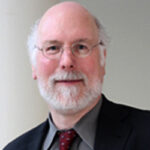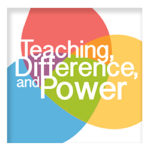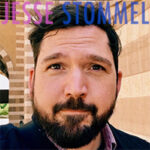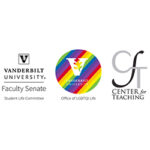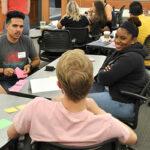CFT offers new guide for writing science exams
Mar. 26, 2021—Are you a scientist who uses timed exams in your course? Would you like to know some research-based recommendations for making your exams more valid, effective, and equitable? If the answer to both those questions is yes, check out our new guide for writing science exams. Put together by a learning community of scientists striving...
Active Learning Online: Five Key Principles with Stephen M. Kosslyn
Mar. 22, 2021—Active learning leads to substantially better learning than occurs with traditional lecturing. This workshop will review the nature of active learning and explain why it is so effective. The workshop will focus on five fundamental principles drawn from the science of learning; these principles range from Deep Processing (the more mental effort one expends when...
Never Going Back: What Online Teaching in the Times of COVID Can Add to Our Teaching Toolkits – Diana Heney
Mar. 18, 2021—by Mohammad Meerzaei Teaching Students, Coaching Thinkers: Diana Heney, Assistant Professor in Philosophy Dr. Diana Heney joined the Department of Philosophy in Fall 2019. Having been a coach before starting her teaching career, her teaching has been formed around the idea of helping people discover their potentialities and ways to actualize them. In an interview...
Upcoming Meeting Around Teaching and Race
Mar. 17, 2021—On April 2nd, from 12:30pm to 2:00pm, at this link, we will focus our attention on what faculty can do to close race (and other) performance and persistence gaps across the disciplines. Throughout 2020-21, a group of STEM faculty have met to discuss their concerns with disparities that exist between underrepresented and well-represented groups of undergraduate...
Leading Lines Podcast Features Jesse Stommel
Mar. 16, 2021—Jesse Stommel is an author, speaker, and teacher with a focus on education, critical digital pedagogy, and documentary film. He’s the co-founder of the Digital Pedagogy Lab, a fantastic professional development workshop for those interested in critical digital pedagogy. He’s also the co-founder of Hybrid Pedagogy, the journal of critical digital pedagogy. And he’s the...
New Blog Series Asks Faculty to Share What Practices They Will Carry Forward in Post-pandemic Teaching
Mar. 15, 2021—With the outbreak of COVID-19 and the resulting shift to alternative modes of instruction, faculty and other instructors had to practice a form of adaptive teaching to meet the learning needs of their students. As the fall semester came to a close, CFT graduate teaching fellow Mohammad Meerzaei interviewed faculty members from across the campus...
Transform your teaching with Perusall with Eric Mazur
Mar. 10, 2021—Learning is a social experience — it requires interactions and interactivity. The coronavirus pandemic has been a good opportunity to rethink our approach to teaching. Moving some tasks to an online format suggests that many activities that have traditionally been synchronous and instructor-paced, can be made asynchronous and self-paced. Through Perusall, we will demonstrate how...
Supporting LGBTQI+ Students
Mar. 9, 2021— In March, the CFT, the K.C. Potter Center and Office of LGBTQI Life, and the Faculty Senate, are proud to co-sponsor two discussions about how faculty and staff can better support LGBQI+ students. On March 12th (12:00-1:30pm), after some preparatory readings/videos on various social and academic challenges LGBTQ+ students...
Never Going Back: What Online Teaching in the Times of COVID Can Add to Our Teaching Toolkits – Mark Schoenfield
Mar. 8, 2021—by Mohammad Meerzaei A Pedagogic Asset Created: Dr. Mark Schoenfield, Professor of English Dr. Mark Schoenfield is a professor of English and a recipient of the Jeffrey Nordhaus Award for Excellence in Undergraduate Teaching in Humanities. His transition to online teaching meant rethinking his method of course design, building new creative assignments, and engaging more...
Goal-driven Course Design Refined by Data on Students’ Learning: A Case Study
Mar. 3, 2021—Goal-driven course design refined by data on students’ learning is a cornerstone of CFT philosophy and practice. Ethan Joll, a graduate student in Biomedical Engineering, offers a compelling description of his own data- and goal-driven course design for a section of TA Orientation. It’s a fantastic case study that highlights the value of gathering information from...

